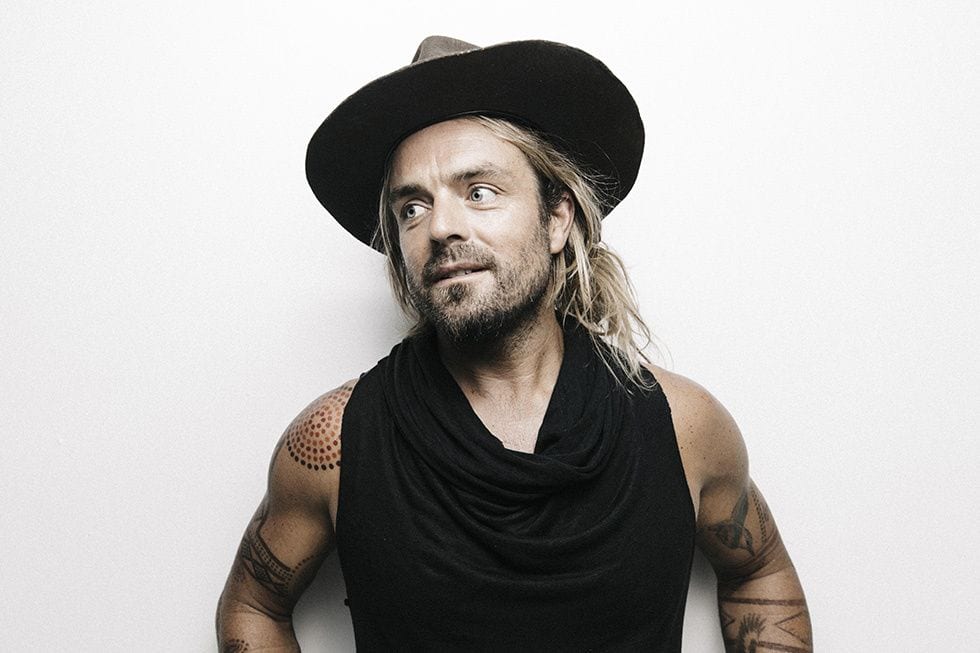
Xavier Rudd believes in the interconnection of all earthly and celestial elements. Rudd’s new release, Storm Boy, explores the linkages between humans and the earth while endowing the listener with an impression of optimism. Like his previous endeavors, Storm Boy captures the need to maintain an environmental and human kinship. Yet this album adds to Rudd’s repertoire by showcasing his awareness of global terrorism, historical reconciliation, and racial injustice. Rudd’s musical power is his ability to call attention to these conditions.
Storm Boy‘s message of hope begins with the opening track “Walk Away“. The lyrics capture the political disunity and social inequity currently suffocating goodwill. Rudd illustrates “[he’s] seen people holding on to nothing / Broken dreams and broken cords”. As the lyrics change from “holding on to nothing” to “holding on to something”, the track becomes more optimistic. Rudd’s vocal harmonies and instrumentation swell and personify an emotional uplift. Clearly, Rudd is not a glassy-eyed idealist as using “holding on to something” demonstrates the need to continue progressing.
The 1976 Australian film Storm Boy inspired the title track and album. Rudd contextualizes this fact by the lyrics “pelican drifting slowly looking for a feed / Like Mr. Percival the storm boy.” Storm Boy reflects the eponymous coming-of-age film’s themes including the development of empathy for humans, animals, and the environment. For instance “Gather the Hands” pinpoints “foolish, segregation scars deep beneath the skin / Of the black man and the white man and everyone in-between.” Meanwhile “Best That I Can” specifically problematizes the cycle of “disease multiplying from the shitty food / And pharmaceutical companies got it made”. This track also mentions “the President says science got it wrong”. Considering Australia has a Prime Minister, this seems like a direct reference to Trump’s incomprehension of scientific foundations while positioning himself as a hubristic climate-change denier.
Storm Boy reiterates a definite sense of spirituality. In “Times Like These“, Rudd connects his spirituality to the natural world, “I believe in the stories of the stars / And times like these, constellations carry me.” Storm Boy excludes piousness and religious fervor, however, Rudd understands holy figures unevenly. Rather than seeing Jesus Christ as wrathful, Rudd contends “I believe there was a man called Jesus Christ / And in times like these he said ‘treat each other equally’.” Rudd omits admonishment of the zealots who use religion to support bigotry. “Best That I Can” specifically mentions “holy, holy, Mother Teresa / Working her fingers to the bone in the slums of Kolkata.” Here he fails to critique Mother Teresa’s tie to colonialism and coerced conversion. Whereas Rudd uses his albums to meditate on his spiritual ideologies, he lets these two figures stand as adulated symbols of mass-produced religion.
“Keep It Simple” and “Feet on the Ground” have a distinct reggae vibe as Rudd’s vocals echo Bob Marley’s lilting elocution. Rudd imbues both tracks with an overt political edge but avoids browbeating similar to the classic reggae style. In “Keep It Simple”, Rudd reminds of those “often imprisoned by the mind and the fear of genocide / Now be it Hitler, be it ISIS, be it Taliban/Pick your crisis.” Rudd doesn’t dwell on the negative effects rather his music sketches an emboldened future. As he sings “Keep your eye on the prize / And keep the messages alive / See the prescription for the people is the chance to keep it equal.” Rudd uses the inherently political reggae to underscore Storm Boy‘s credos.
Rudd incorporates a didgeridoo in “Feet on the Ground” thereby maintaining his Australian musical identity. This tonality establishes a distinct indigenous sound against the reggae. The music throughout Storm Boy, however, lacks nuance and creativity. The album’s majority consists of the basic instrumental setup with little variation or experimentation. But Rudd’s insufficient use of indigenous Australian instruments or influences does not align with his emphasis on cultural spirit. The music is safe, yet there’s an opportunity for experimentation.
But Rudd is a wordsmith with a musical proclivity and Storm Boy‘s strength is the lyrics. The album affirms the spiritual connection between the earth and humans is dire. In a time of political dysfunction, Storm Boy offers a positive and uplifting perspective while critiquing the global systems that render social injustices.

